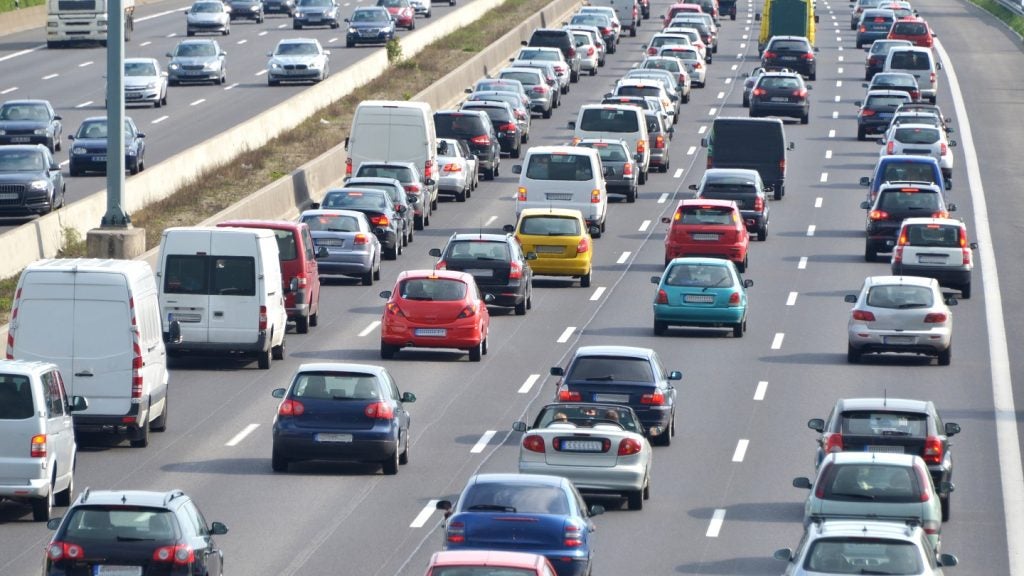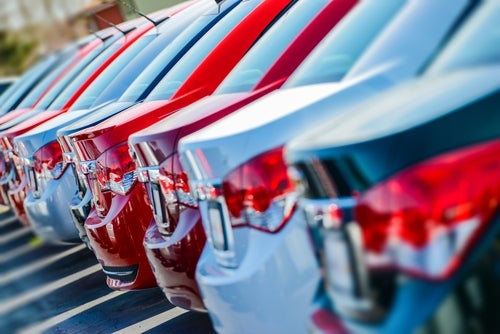
Startline Motor Finance enjoyed a record-breaking year across 2020 despite immensely tricky trading conditions. Motor Finance’s Hannah Wright sat down with co-founder and chief executive Paul Burgess to get the details.
Where was Startline before the pandemic?
When the crisis hit, we had already been planning for a downturn. After a period of growth, these things are typically cyclical, so we anticipated that a recession could be coming. Due to this awareness, we had been asking ourselves the question: how do we plan for this when it arrives?
I had been researching the background on recessions and companies that come out of a recession well. It tends to be the companies that are dynamic and not averse to change. They’re very nimble, but equally, try to treat the situation as positive. When the pandemic hit, it was this mindset that guided the senior team on how we were going to approach things.
Why do you believe Startline had such a successful year, despite the tough circumstances?
To put it simply, we remained open to support our introducers, customers and suppliers. There was probably a lot of reactionary approaches across the market, but those introducers that tried to stay open and service customers have, in general, come out stronger. Those are the firms that will now have full Click and Collect home delivery services.
How well do you really know your competitors?
Access the most comprehensive Company Profiles on the market, powered by GlobalData. Save hours of research. Gain competitive edge.

Thank you!
Your download email will arrive shortly
Not ready to buy yet? Download a free sample
We are confident about the unique quality of our Company Profiles. However, we want you to make the most beneficial decision for your business, so we offer a free sample that you can download by submitting the below form
By GlobalDataThere was a gap in the market for a digital disruptor, like Cazoo, but due to the pandemic, most dealership groups have got to that place through necessity, to continue trading.
We also decided not to furlough staff. As new deal volumes began to diminish in our transactional departments, we redirected those volumes over to the customer service side of the business and that allowed us to cope with the numbers of individuals ringing up asking for help and support.
We retrained staff and created a dedicated team to deal with customers that were struggling. That’s how we achieved the growth: being a solid, open partner that was reactive to dealer needs.
We’ve strengthened our relationships. When you support people through difficult times, they remember that, and the relationship does well from it.
What was the impact on consumer behaviour?
At the start, consumers were panicking. The Financial Conduct Authority (FCA) were quick to give guidance on the mortgage market and we followed that guidance as we knew the direction of travel for the consumer motor finance market. Because we had transferred the business across, we were able to cope with the increase in demand for customer communication.
In those early stages, we were trying to help customers and providing forbearance where necessary. That allowed us to focus on our existing customers when the demand from new customers fell.
When forbearance requests began to tail off, the business was ready to seize the opportunities stemming from the pent-up demand. We hadn’t furloughed anyone, there were no admin barriers, everyone was still working and could transfer back to the transactional departments.
We augmented our services in June with an Open Banking solution which allowed the analysts better insight into our customers’ financial position. This allowed us to have sensible conversations, which, without the technology, would have been difficult. It has created better outcomes and communication.
It doesn’t help anyone if someone asks for forbearance and they don’t need it. It puts stress on the company and it doesn’t represent a good outcome for the customer.
From our perspective, consumer appetite has been strong but I know the space that we operate in now feels slightly underserved because some of our competitors have pulled back.
For Startline, yesterday was the busiest day we have ever had in terms of volumes of proposals. It almost seems counter-intuitive. The underlying lesson seems to be that people will continue to buy cars no matter the hurdle.
I think there has been an element of throwing off the shackles for some people – they haven’t been on holiday, they haven’t been able to spend much, so they have bought the car they have been thinking about for the last two years.
Has technology played an important role at Startline?
Certainly. Since inception, we have worked in the online market, with online brokers. Our technology was built to service the online journey. As dealers were grappling with becoming increasingly digitally orientated in their sales proposition, we already had the technology there to support that.
There were many larger dealers we had been trying to persuade to adopt our e-agreement solution. It had been ongoing for three or four years and then it happened in a month as the pandemic hit.
Out of adversity comes opportunity and we were in the right place at the right time, with the right attitude and the right technology. We always felt that the online channel would be the way that the market would go.
We don’t think the market will exist solely online. Vehicles are such a big purchase, and often customers want to go in and touch the car. Dealers still need to cater to those kinds of customers. It’s interesting to look to Apple as a parallel example, they are considered a forward-looking technology company but they still have showrooms.
We conducted some research at Startline, and it revealed that, where dealers had a showroom experience, customers took comfort in that and it worked to create a level of trust.
What challenges did Covid-19 throw your way?
The transition to remote working was tricky. If I’m honest with myself, before being forced into this, I was pretty traditional in my view and believed that you needed to be in the office to do your job properly. This has been an epiphany for me because you can be more productive from home in many circumstances.
I think the issue with remote working is that you potentially lose sparks of creativity and innovation from those spontaneous meetings in the kitchen, or conversations that you might not pick up the phone for. It has been hard but we have tried to facilitate that communal space away from the workplace, so those chance interactions can continue to happen.
For our employees, we recognise that there is a human tragedy happening with the pandemic and we understand how difficult it is for everyone. At the same time, the boundaries between office and home become blurred, so you have to encourage staff to be disciplined and take breaks, get into a routine, and exercise or do whatever they can do to relax.
We also set up a staff wellbeing channel on Microsoft Teams and we are doing five-minute briefings each week to update everyone on the business. I think the most recent lockdown has been more straightforward as it has been business as usual. The digital journey is already there.
How do you anticipate the market will change in the future?
I think that the ability for the business to morph into a remote business while giving real flexibility to staff will be something that shapes the market going forward. We will see more digital adoption and more streamlined processes.
We will likely move to a hybrid working solution. Within our underwriting solution, we’re looking at a way of rotating our staff so that we get more coverage and offer a better service level across the entire week. Because of the changing market, numerous transactions now take place at times we’d have previously considered unusual.
In a more regulated and technologically advanced world, there will be more dealer consolidation. Consequently, some of the smaller dealerships that are family-owned may get absorbed by the larger ones. It was happening before Covid-19, but I think the pandemic has accelerated that. Those firms won’t have the strength and balance sheet to support them through the crisis.
It’s amazing how people continue to buy vehicles. If you had asked us at the start of the pandemic if we would have increased our new business volumes beyond our budget, and 20% beyond the previous year, most of the team would have laughed. But people still need mobility to live and as the impact of the pandemic continues, and people continue to turn away from public transport, it could boost demand.
What’s in the pipeline for Startline?
On the surface, all of our technology will be getting a facelift and we plan to refresh the website and customer portal.
Beyond that, we’ve got a product coming out called Startline Insights, an information portal that allows the dealer to access real time information on their transactions and other data. It’s all customisable for the user.
One of the benefits of this is that we have developed a credit filtering tool and can tell the dealer where each customer should be placed e.g. in prime, near prime or subprime. Some technology firms say that they can do this, but they are using proprietary credit scores.
Conversely, our USP is that we build scorecards that are highly predictive of the credit outcome. It is easy to establish customers in the prime area of the market because they tick all the boxes. In near prime, it is hugely complex whilst acceptances in the subprime segment tend to be heavily caveated.
As you go down the credit spectrum, the commission levels reduce. If you can place the customer in the right area, you can maximise your revenue and tailor your conversations depending on the different types of customers.







